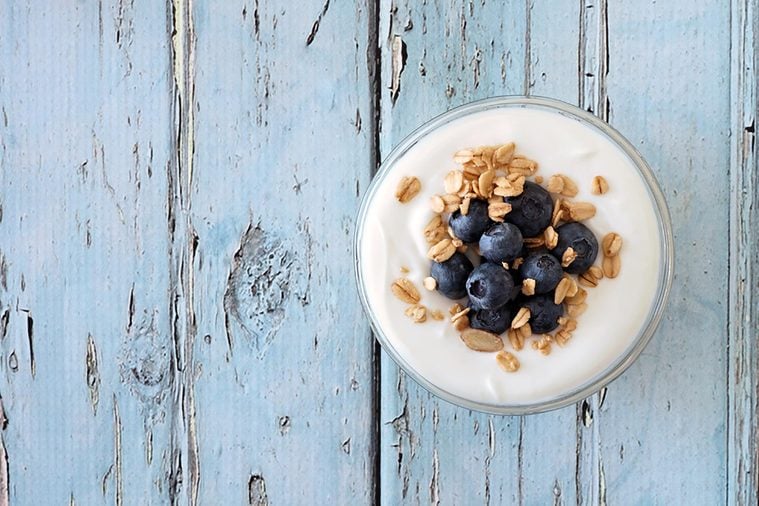How a Healthy Gut Microbiome Could Add Years to Your Life
Updated: Mar. 01, 2021
New research suggests that the collection of bacteria—yes, good germs—in your gut is linked to how healthy you'll be as you age.

You might have heard about the importance of your gut microbiome. Now it turns out that this “good” bacteria could help you live a longer, healthier life, according to a recent study published in the American Society for Microbiology’s peer-reviewed journal mSphere.
Chinese and Canadian researchers teamed up for one of the largest studies on the microbiome in humans. Looking at the gut bacteria of over 1,000 people of all ages and health conditions, they found a link between the health of the individual and the bacteria in their intestines. “The main conclusion is that if you are ridiculously healthy and 90 years old, your gut microbiota is not that different from a healthy 30-year-old in the same population,” Greg Gloor, PhD, the principal investigator on the study and also a professor at Western’s Schulich School of Medicine & Dentistry and scientist at Lawson Health Research Institute in Canada, said in a press release.
The study couldn’t identify whether it’s your gut microbiome that keeps you healthy or whether healthy people simply have a healthy gut microbiome. “It begs the question, if you can stay active and eat well, will you age better, or is healthy aging predicated by the bacteria in your gut?” study author Gregor Reid, PhD, a professor at Western’s Schulich School of Medicine & Dentistry and Scientist at Lawson Health Research Institute, also said in the press release.
Even so, the researchers say that a healthy gut microbiome should be something to aim for. “This demonstrates that maintaining diversity of your gut as you age is a biomarker of healthy aging, just like low cholesterol is a biomarker of a healthy circulatory system,” Gloor said. Watch out for these signs that your gut health is out of whack.
So how can you improve your gut microbiome? Try adding probiotics to your diet, either through eating probiotic-rich foods or taking supplements (here’s exactly what you should know before taking them). “These ‘live microorganisms,’ when consumed, maintain or restore beneficial bacteria to the digestive tract,” says Tanya Zuckerbrot MS, RD, New York City-based registered dietitian, bestselling author, and founder of The F-Factor Diet. “They are found naturally in fermented foods such as yogurt, kefir, kimchi, and sauerkraut.”
If you’re taking supplements, make sure to keep them in the fridge. “You wouldn’t eat yogurt that wasn’t refrigerated, so the same rule applies,” Zuckerbrot says. “Many are naturally sensitive to heat, so in order to keep the cultures alive they need to be kept cool or refrigerated. Those sold at room temperature likely don’t contain active strains of the bacterial cultures.”
We know that probiotics help regulate cholesterol, prevent certain cancers, and improve the immune system, so it’s possible that these factors contribute to a healthier, longer life. But further research is needed to help us understand exactly how our gut bacteria influences our longevity. “By studying healthy people, we hope to know what we are striving for when people get sick,” Reid said. “The aim is to bring novel microbiome diagnostic systems to populations, then use food and probiotics to try and improve biomarkers of health.”
